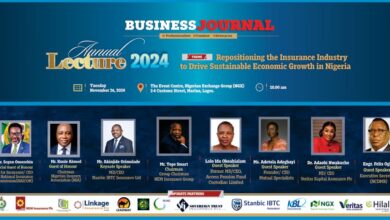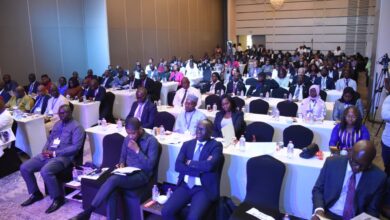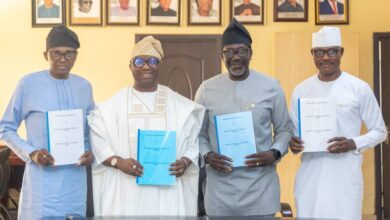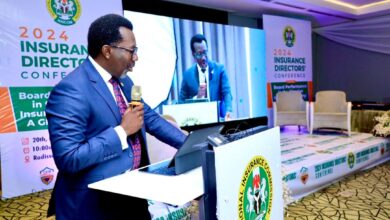Stakeholders optimistic of insurance industry growth, seek NAIPCO support
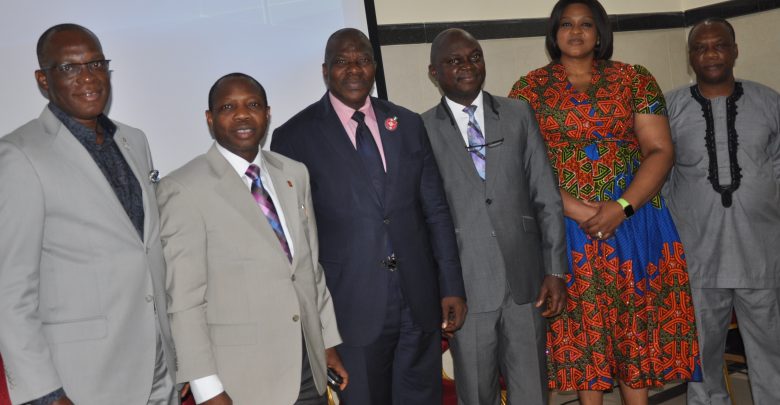
Insurance underwriters and regulators who spoke recently at the 2018 end of year workshop organized by the National Association of Insurance and Pension Correspondents (NAIPCO) in Lagos have expressed optimism that if all hands are on deck the nation’s insurance industry will take its rightful place in the finance sector and contribute significantly to the nation’s growth.
They also called on NAIPCO members to assist the industry in publicizing its activities and projecting the industry’s image in order to raise public confidence on the industry.
Speaking on the theme of the workshop, “Appraising 2018 and Projecting 2019; State Insurance Producer (SIP) in perspective,” included the Deputy Commissioner for Insurance (Technical) Mr. Sunday Thomas who represented the Commissioner for Insurance, National Insurance Commission (NAICOM), Alhaji Muhammed Kari; The President, Chartered Insurance Institute of Nigeria (CIIN) and Managing Director/Chief Executive Officer, Consolidated Hallmark Insurance Plc, Mr. Eddie Efekoha; Chairman, Nigerian Insurers Association (NIA) and Group Managing DirectorDirector, NEM insurance Plc, Mr. Tope Smart and the Managing Director/Chief Executive Officer, NSIA Insurance Plc, who is also the Deputy Chairman, Insurance Committee on Media and Publicity, Mrs. Ebelechukwu Nwachukwu.
According NAICOM boss, “It has become a common saying that Insurance is underperforming in Nigeria, with dismal percentages and unflattering comparisons trotted out to reinforce this position. While one may not disagree that the industry is performing less than optimal potential, the insurance industry has not been static. All our indices have grown steadily though at a slow pace over the past few years.
“The gross premium as at the third quarter was N315 billion, a 22% increase over the N258 billion for 2017 in the same period. The Gross claim figure for third quarter 2018 was N143 billion, a 30% increase over the N110 billion reported for the same period in 2017. We anticipate the final figures for 2018 to be significant indeed.
“The outlook may not be as rosy as we all would have liked but NAICOM sees the silver lining and is fully committed to making the most of it. We have set for ourselves a clear, unambiguous task: to improve the aggregate numbers by enabling individual operators to optimally serve a much larger customer pool with a more varied basket of products. The end game for us is to increase the insurance uptake ratio among the Nigerian populace and we have a number of initiatives in place towards achieving this.”
Kari added, “Financial inclusion is one of the tools we envisage to help us improve market penetration. The initiative is premised on the fact that getting the mass of the financially excluded to embrace insurance in one form or another will have a positive impact. Accordingly, insurance companies are being encouraged to have a buy-in into our micro-insurance initiatives for the Nigerian market. The Takaful market is still grossly under accessed by the public, there is therefore the need for aggressive promotion in aid of financial inclusion.”
In addition, he said, “efforts are being made to expand the distribution channels for insurance products because the traditional channels are becoming too restrictive and suboptimal. Whereas Bancassurance has received the most attention, there are other initiatives to reach out to the public”
He said the achievements of the goal set by NAICOM are predicated on the market’s ability to attract business and customers need to have confidence in operators, adding that NAICOM has championed an industry-wide rebranding project to burnish its reputation which he said they cannot done it alone and called on the support of the media “especially those of you here, under the aegis of the National Association of Insurance and Pension Correspondents (NAIPCO), is crucial.”
On how the media can help the Commission going forward, he said: “The agenda-setting role of the media makes it a formidable ally to have for any social engineering effort to succeed. We therefore urge you ladies and gentlemen to partner NAICOM to clear the cobwebs of misconception about insurance among the populace and propagate the necessity and usefulness of insurance in life and in business. Insurance, like any other business needs a positive image. As the regulator, NAICOM issues policy directives and guidelines from time to time; we need all the publicity you can give us on all our initiatives. We appreciate the role of the press as society’s watchdog and we value feedback from you.”
Kari said NAICOM place a high premium on market information and open to suggestions on how they can assist the media perform its role more effectively either by facilitating skills enhancement among media professionals or in any other mutually beneficial ways.
He reiterated that NAICOM is very much alive to its responsibilities, promising to seek rewarding partnerships and engagements with the media to enable them successfully meet their goals just as he commended the media for being a good partner.
Contributing, Efekoha said there are huge potentials in the industry that has not yet been tapped and cited the micro-insurance as one of the segments of the market that has not been adequately utilized.
Efekoha who called on all hands to be on deck said there is need to develop that segment of the market, which he said the industry has not done so much at that level.
He said so much has been said about micro-insurance but very little has been done, and called on the players to maximize the huge potentials existing in this segment of the market in order to enhance their bottom-line as well as deepen insurance penetration.
NIA’s Chairman, Tope Smart, called on NAIPCO members to support the industry in its drive to deepen insurance penetration and its contribution to the GDP describing the timing of the workshop as most suitable.
Speaking also, Eberechukwu said there is such a need to deepen insurance as a message in Nigeria, noting that the people that have the responsibility to do that are NAIPCO members and the industry players and called on NAIPCO to redouble their effort in this regard.
“In my engagement with NAIPCO and the kind of ideas I have come to hear from some of your members, I’m completely wowed and convinced that if we send insurance messages through this body, this hope and desire we have to actually deepen insurance in Nigeria will actually become a reality. So, I urge you to please continue to project the insurance message and make your voices heard on the ways that you need to do that. Push us the insurance underwriters of the industry to make sure that the message is sent out and we are willing to engage at multiple levels to assist in that process.
“In the course of my career, I worked in two banking groups that have insurance interest. The press that reports banking stories, actually reports the activities of the bank by name, but reports the activities of insurance industry, as an industry. So whenever we have to say claims are not being paid, the message out there is that insurance industry is not paying claims. I don’t think that helps, I think we have gotten to a point where you people have to report the company by name to say who pays claims and you can also say who is not paying claims.
If we say insurance industry, then we all have laundered images that need not to be laundered. We suggest that message that goes out there is buying-in.”
She enjoined NAIPCO members to sensitise the public more on the importance of compulsory insurances.
“In fact I wake up every morning and the first thing I read is a lot of insurance news by most of you here and I think in that same light, as I said before, you can help us to send compulsory insurance message not by pushing the compulsion aspect of it but by pushing the need for it.
“People buy things when they feel that they need those things and I don’t think the average Nigerian understands why they should buy insurance because they have not related insurance to the need that they also identified for themselves but when they suffer losses, that is when they feel the need for insurance but then when you tell the stories why they need insurance and they begin to engage you with it, I think we will sell more products on the brokers side,” she said.


